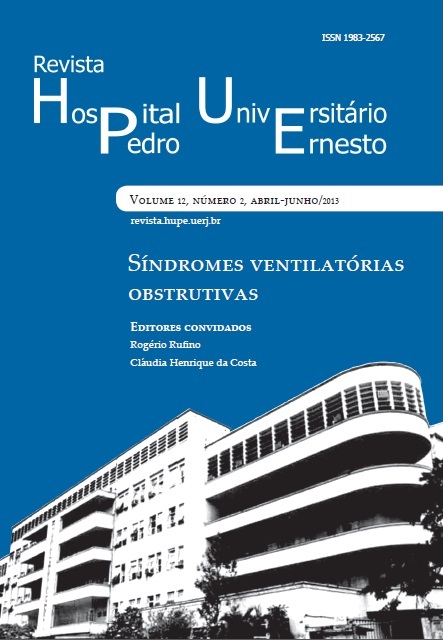Treatment of chronic obstructive pulmonary disease
DOI:
https://doi.org/10.12957/rhupe.2013.8489Abstract
Chronic pulmonary obstructive disease (COPD) is a preventable and treatable respiratory pathology, characterized by airflow limitation. The treatment has recently forwarded with the introduction of new drugs, queries about insertion of inhaled corticosteroids and future association of bronchodilations. The most distressing symptoms for patients who have COPD are dyspnea, exercise intolerance, and the progressive inability to engage in activities of day-to-day activities. These clinical manifestations of COPD ultimately lead to poor health-related quality of life. As with many other chronic diseases, a multimodality approach to the of COPD is management advocated in several published, evidence-based guidelines. The main goals of COPD management are focused on relieving symptoms, improving health status, preventing lung function decline, improving exercise performance, preventing exacerbations, and decreasing mortality. Furthermore, these goals should be reached with minimal side effects from treatment. Traditional COPD therapies have focused on symptom control with the aim of reliefing both problems of reduced airflow and declining lung function. Current medications used for COPD can reduce or abolish symptoms and the number and severity of exacerbations and can improve exercise capacity and health status. Current pharmacotherapy aims at improvement of symptoms, exercise tolerance, and health status and decrease in exacerbations. Prevention of disease progression and reduction in mortality are the ultimate goals of such therapy. All symptomatic patients who have COPD should receive pharmacologic intervention.Downloads
Published
2013-06-30
Issue
Section
Artigos


